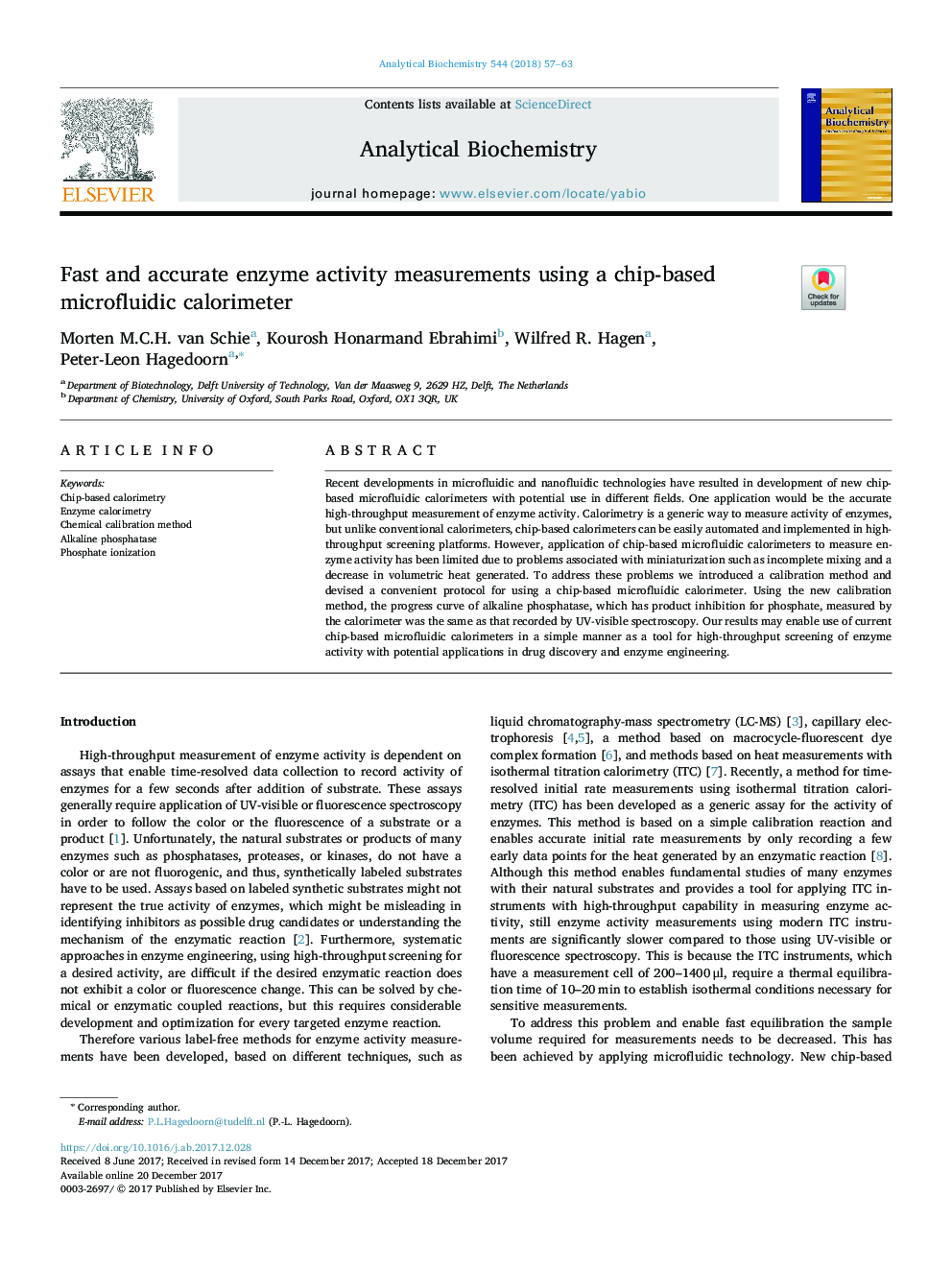| Article ID | Journal | Published Year | Pages | File Type |
|---|---|---|---|---|
| 7557042 | Analytical Biochemistry | 2018 | 7 Pages |
Abstract
Recent developments in microfluidic and nanofluidic technologies have resulted in development of new chip-based microfluidic calorimeters with potential use in different fields. One application would be the accurate high-throughput measurement of enzyme activity. Calorimetry is a generic way to measure activity of enzymes, but unlike conventional calorimeters, chip-based calorimeters can be easily automated and implemented in high-throughput screening platforms. However, application of chip-based microfluidic calorimeters to measure enzyme activity has been limited due to problems associated with miniaturization such as incomplete mixing and a decrease in volumetric heat generated. To address these problems we introduced a calibration method and devised a convenient protocol for using a chip-based microfluidic calorimeter. Using the new calibration method, the progress curve of alkaline phosphatase, which has product inhibition for phosphate, measured by the calorimeter was the same as that recorded by UV-visible spectroscopy. Our results may enable use of current chip-based microfluidic calorimeters in a simple manner as a tool for high-throughput screening of enzyme activity with potential applications in drug discovery and enzyme engineering.
Keywords
Related Topics
Physical Sciences and Engineering
Chemistry
Analytical Chemistry
Authors
Morten M.C.H. van Schie, Kourosh Honarmand Ebrahimi, Wilfred R. Hagen, Peter-Leon Hagedoorn,
